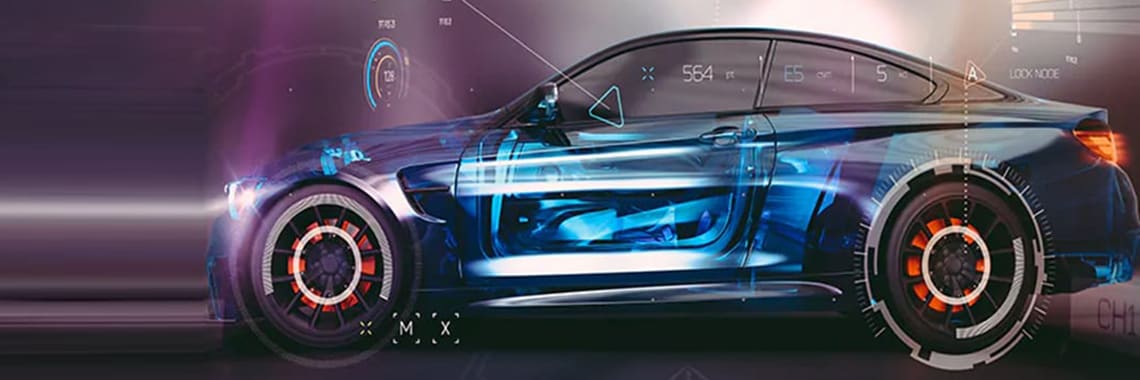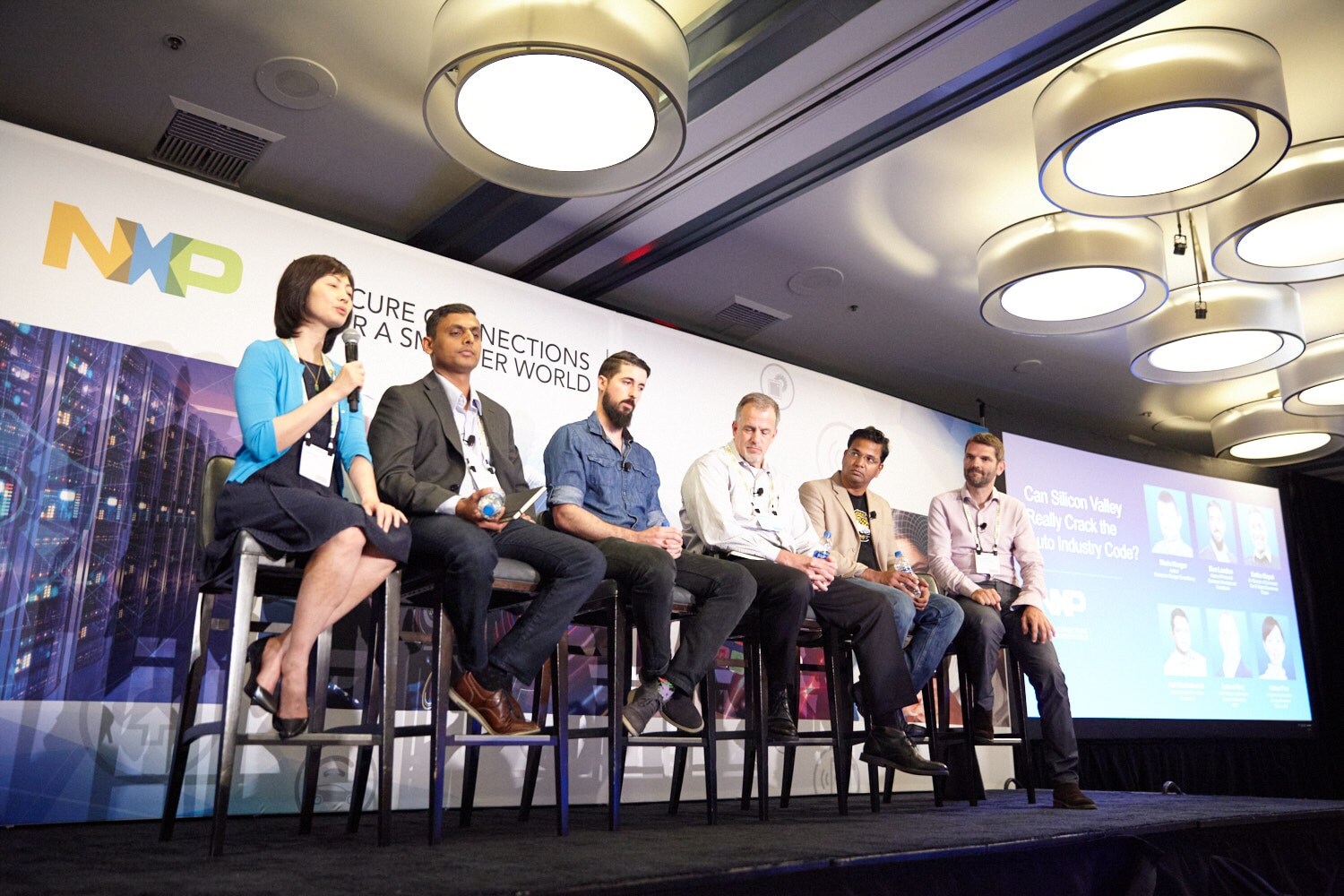Author

Monica Davis
Monica Davis writes about technologies and industry challenges that shape security and edge topics.

A whole new wave of innovative mobility startups appeared soon after Tesla disrupted the long-established automotive industry. Now the hype phase is over as all eyes look to see if Silicon Valley can crack the complex auto industry code.

From Demand to Design
At NXP Connects in Silicon Valley, we brought together a panel of industry experts from Rivian, Baidu, Continental and DeepScale to discuss the challenges and opportunities ahead, as the world watches on to see if Silicon Valley can navigate the pivotal changes the auto industry is expecting.
Silicon Valley is well into the race, but the finish line may be blurry
Today, “cracking the auto industry code” seems a long way off and we don’t really know what success looks like yet or what consumers want from an autonomous car. Every region has a different perspective on the value proposition a vehicle offers and how technology should be built and adopted. So the thought of creating one global solution might not be realistic and achieving anything close to it won’t happen if automotive companies are working in an echo chamber.
“‘The code that they’re cracking’ is actually changing in terms of what the expectations are from the consumers,” Leland Key, SVP Global Automotive Sales and Marketing at NXP shared.
It’s going to take many of the world’s sharpest minds working together, looking far beyond the cities they live in, to get close to creating a product that “works” across the world. Achieving any groundbreaking autonomous solution will require collaboration—which is why many believe Silicon Valley may achieve major breakthroughs in the auto industry before everyone else.
“There are certain things that cannot be achieved by just 10, 20, 30, 40, 100 people. It requires this community setting. Linux is a great example. All of that came together to allow a platform that is being used in millions of millions of devices today,” Sethu Gopal, Sr. Director, Connected Car and Digital Experience at Rivian shared.
Silicon Valley’s culture of collaboration could be the difference
“Who in the world knows how to handle data better than Silicon Valley? And that’s, where I think the valley comes in—breaking that auto industry code of, you know, trying to do everything in-house versus trying to do outside their ecosystem,” Anil Rachakonda, Vice President, co-pace at Continental said.
People working for tech companies in Silicon Valley want to be there. It may be expensive, crowded and overwhelming at times, but the people that are working in Silicon Valley are exactly where they want to be. It offers a unique, casual and accessible opportunity for collaboration that few cities in the world can rival. No ambitious CEO wants to wait days or weeks to get a chance to talk to someone they’re interested in working with, but that’s the reality for most cultures. Silicon Valley doesn’t have these barriers, which is why we expect to see some compelling partnerships develop.
Automotive companies may be forced to collaborate to keep up with consumer demand
The automotive industry is making a transition from hardware to software as we see companies like Tesla put millions of lines of code into their vehicles. However, the majority of automotive companies don’t have the expertise or code base… yet. This may lead some to seek outside help to ensure that they stay in the race to get autonomous vehicles on the road.
Is the auto industry still a viable market to succeed?
Billions have been spent and nobody is expecting their money to return within the next decade, at least. Tesla has made impressive breakthroughs in the industry yet it still reports huge losses. It’s easy to understand why automotive companies may not be feeling too optimistic about investing heavily in autonomous cars today.
Despite the uncertainty ahead, startups are still raising money to build autonomous cars as it’s clear that the world wants them; China is already building highways to prepare for autonomous vehicles. Plus, there has been a shift in the industry: car owners are driving less due to ride-sharing services become ingrained in big city culture. This can only be a good sign of what’s to come.
Even with the major setbacks the industry has seen, a collaborative network continues to expand across the industry with startups, semiconductor companies, automotive suppliers and established carmakers—which makes us wonder, what type of partnerships will evolve?
Watch the recording:
![]()
Related recordings from NXP Connects Silicon Valley:

Marketing Communications Manager at NXP
Monica Davis writes about technologies and industry challenges that shape security and edge topics.

2020年6月19日
投稿者 Ross McOuat

2020年7月29日
投稿者 Davina Moore

2020年7月30日
投稿者 Jason Deal